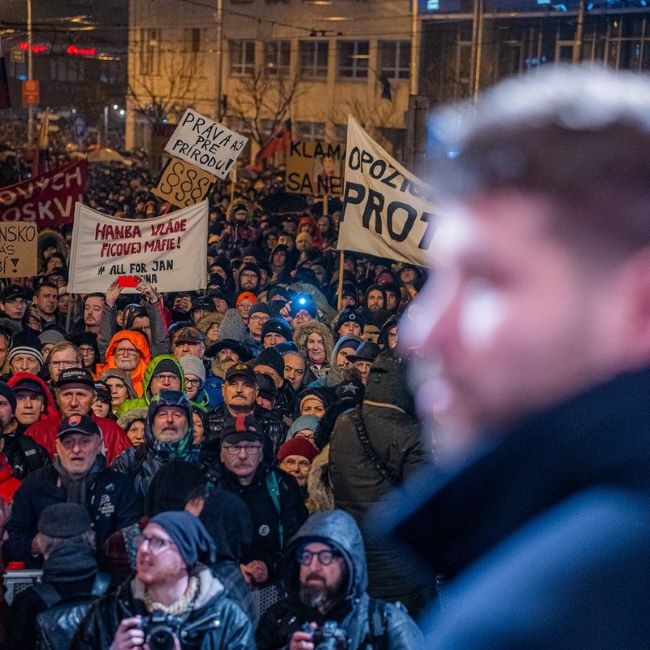Slovakia’s highest court ruled Wednesday that key provisions of a controversial amendment of the penal code drafted by populist Prime Minister Robert Fico‘s government are constitutional. When approved by Parliament in February, the legislation came under fire domestically and abroad. Street protests spread from Bratislava, the capital, to more than 30 cities and towns across the country.
Fico, who is recovering at home from wounds inflicted during an assassination attempt in mid-May, welcomed the ruling as vindication for his coalition government. He demanded an apology from those who had been opposed, criticising President Zuzana Čaputová, media and NGOs, and those who staged the protests for their “expressions of hate.”
The Constitutional Court upheld the changes as constitutionally valid, including the abolition of the special prosecutor’s office that deals with organised crime, corruption and extremism. The change empowers prosecutors in regional offices to handle such cases in the future.
Zuzana Čaputová, President of the Slovak Republic said the amendment could jeopardize the rule of law. Opposition parties were likewise concerned.
Thanks to the decision, Michal Šimečka, Chair of the liberal Progressive Slovakia party, said the government had achieved its goal.
“They enforced amnesty for their people, for jerks and against the public interest… bad news for justice and the safety of people in Slovakia.”
The proceedings had confirmed that the proposed amendment was in some way contradictory to the constitution, Šimečka said, pointing out that the court had said as much with regard to provisions such as the retroactive opening of plea agreements or the use of illegal evidence in favour of the accused. Moreover, he noted how the constitutional judges had expressed their reservations about the arbitrary way in which the law had been passed.
The Christian Democratic Movement (KDH) said that while it fully respects the court’s decision, it doubted that the overall effect would benefit a fairer arrangement for the people of Slovakia, increasing their safety and protecting their property.
The party’s expert on law, justice and security, former Justice Minister Viliam Karas, was similarly direct. “The Constitutional Court usually very reluctantly interferes with the legislative power of deputies, even only in extreme cases. A finding of the EU confirmed that the amendment also contained extreme provisions. However, it is necessary to distinguish compliance with the Constitution of the Republic of Slovakia and whether the amendment to the Criminal Law will bring justice to society.”
The European Parliament had been sceptical of Slovakia’s ability to fight corruption in the event the proposed changes were adopted. European officials claimed the draft legislation represented a threat to EU financial interests and its anti-corruption framework. Despite this, the Fico coalition fast-tracked the changes through Slovakia’s Parliament, circumventing routine review procedures and limiting parliamentary debate.
Fico’s return to power for the fourth time last year came after his party campaigned on a pro-Russian, anti-US line, leaving critics concerned that Slovakia might be about to align with Prime Minister Viktor Orbán‘s Hungary.

